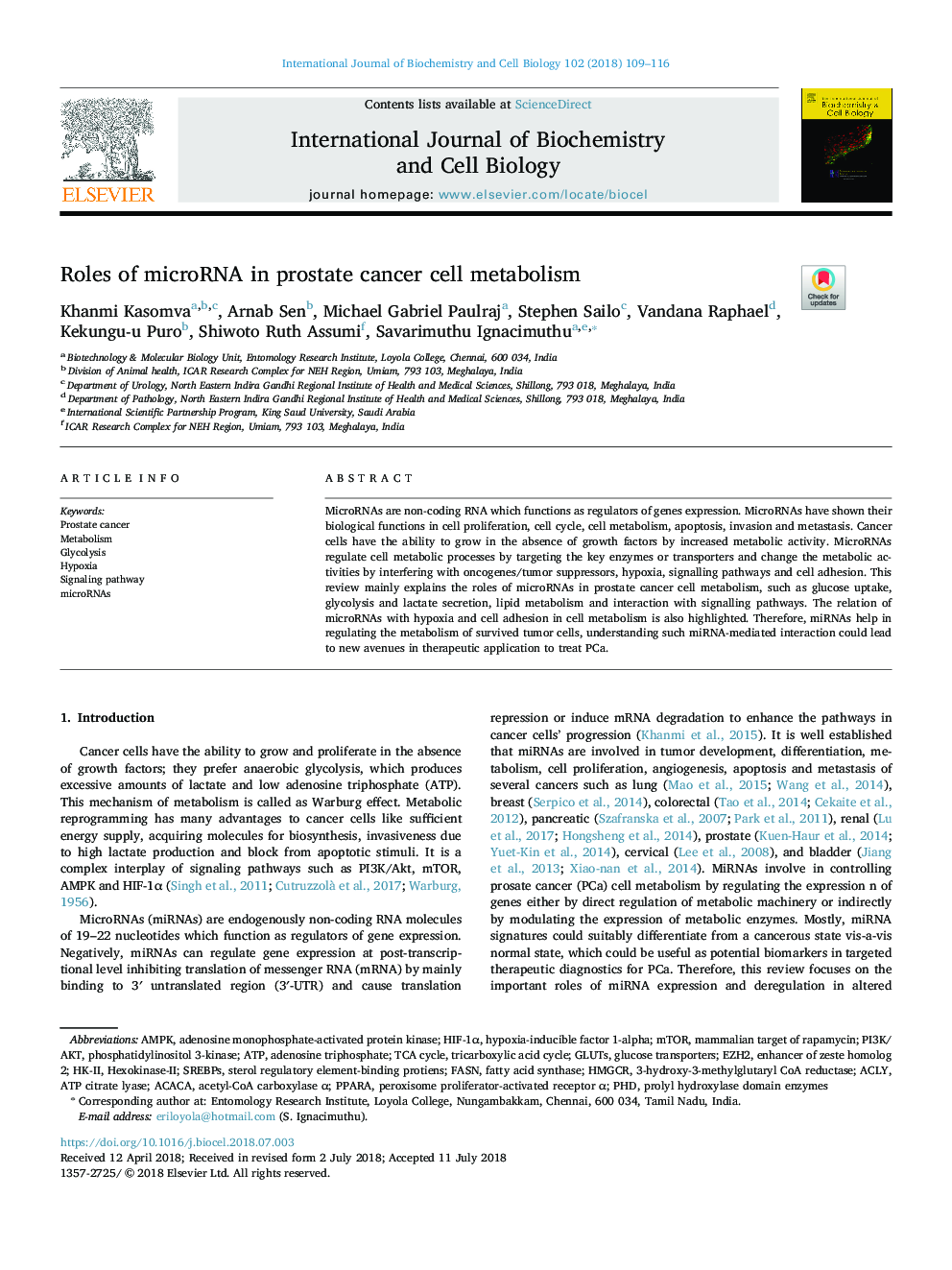| Article ID | Journal | Published Year | Pages | File Type |
|---|---|---|---|---|
| 8321893 | The International Journal of Biochemistry & Cell Biology | 2018 | 8 Pages |
Abstract
MicroRNAs are non-coding RNA which functions as regulators of genes expression. MicroRNAs have shown their biological functions in cell proliferation, cell cycle, cell metabolism, apoptosis, invasion and metastasis. Cancer cells have the ability to grow in the absence of growth factors by increased metabolic activity. MicroRNAs regulate cell metabolic processes by targeting the key enzymes or transporters and change the metabolic activities by interfering with oncogenes/tumor suppressors, hypoxia, signalling pathways and cell adhesion. This review mainly explains the roles of microRNAs in prostate cancer cell metabolism, such as glucose uptake, glycolysis and lactate secretion, lipid metabolism and interaction with signalling pathways. The relation of microRNAs with hypoxia and cell adhesion in cell metabolism is also highlighted. Therefore, miRNAs help in regulating the metabolism of survived tumor cells, understanding such miRNA-mediated interaction could lead to new avenues in therapeutic application to treat PCa.
Keywords
HMGCREZH2PHDGluTsSREBPsHIF-1αACLYATP citrate lyasePPARAmTORACACAHK-IIAMPK3-Hydroxy-3-methylglutaryl CoA reductasePI3K/AKTAdenosine TriphosphateATPacetyl-CoA carboxylase αfatty acid synthaseenhancer of zeste homolog 2glucose transportersmicroRNAsProstate cancerhypoxia-inducible factor 1-alphaFasnPhosphatidylinositol 3-kinaseMetabolismSignaling pathwaymammalian target of rapamycinHypoxiaadenosine monophosphate-activated protein kinaseTCA cycletricarboxylic acid cycleGlycolysisperoxisome proliferator-activated receptor α
Related Topics
Life Sciences
Biochemistry, Genetics and Molecular Biology
Biochemistry
Authors
Khanmi Kasomva, Arnab Sen, Michael Gabriel Paulraj, Stephen Sailo, Vandana Raphael, Kekungu-u Puro, Shiwoto Ruth Assumi, Savarimuthu Ignacimuthu,
